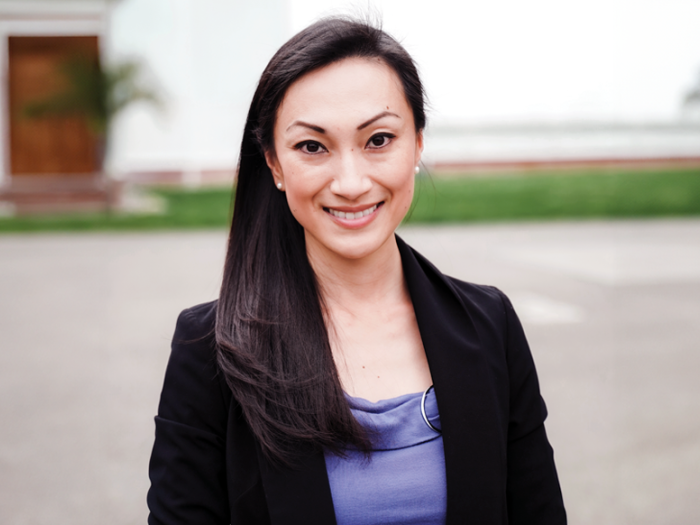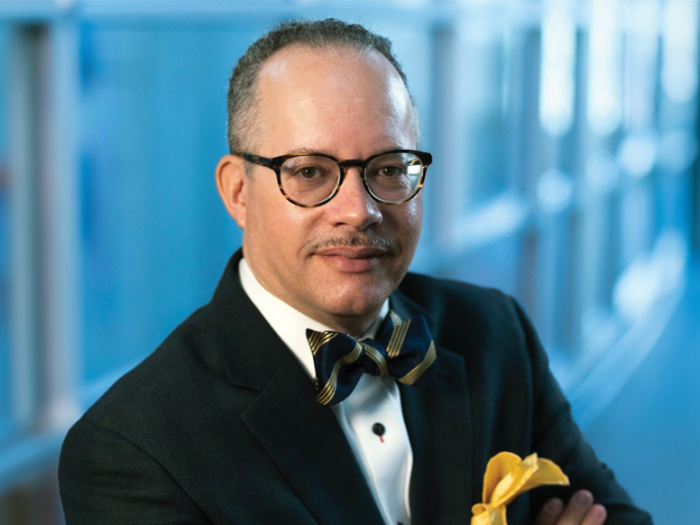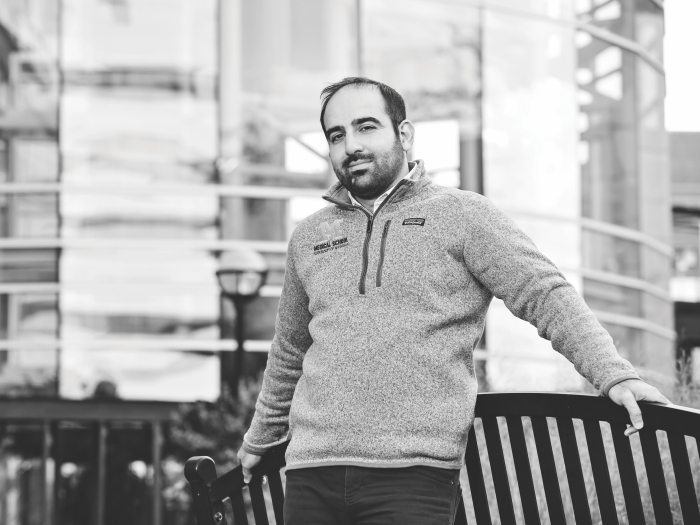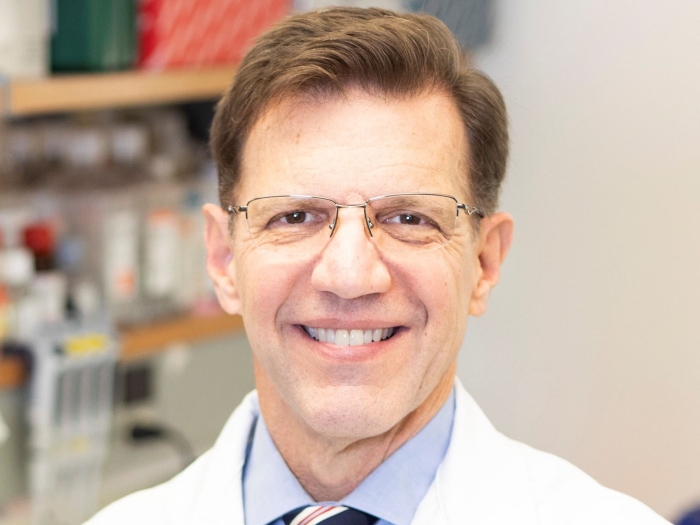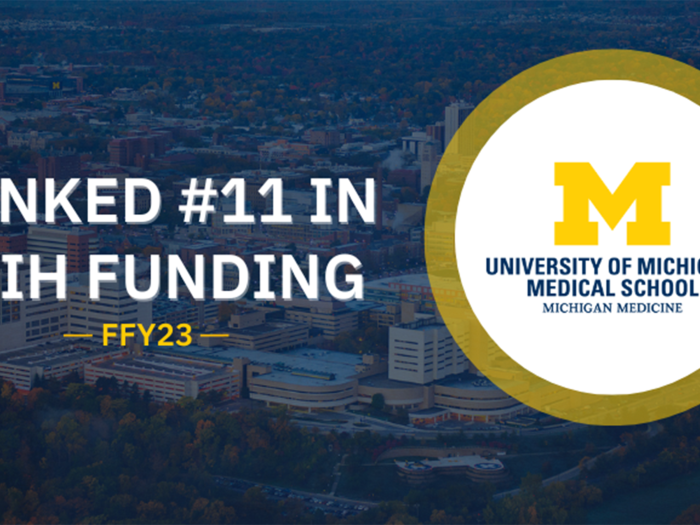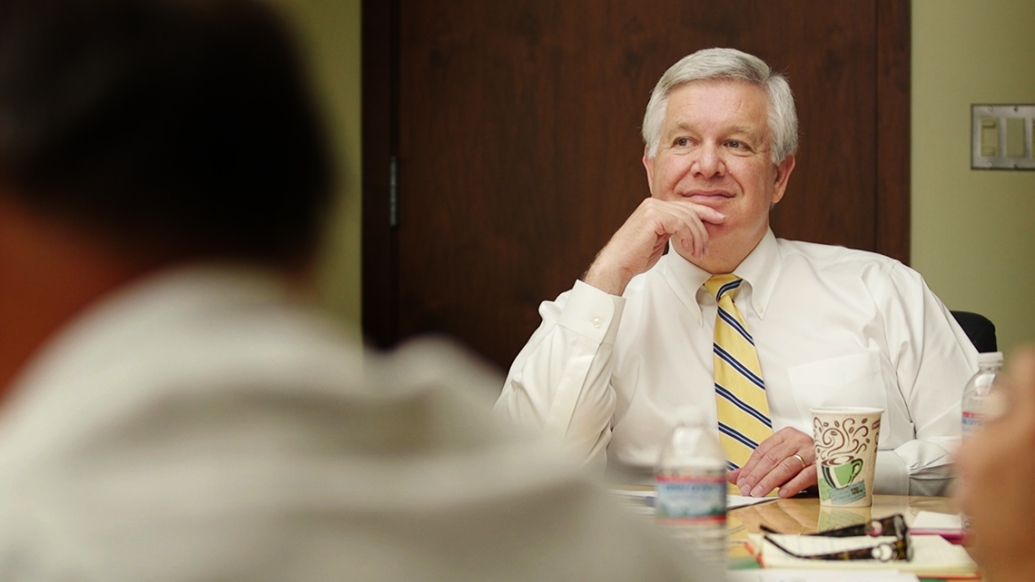
Dear Alumni and Friends,
When I entered medical school in the early 1980s, I chose cardiology because incredible new, less-invasive approaches like angioplasty were revolutionizing the way we treat patients with heart disease. Although the pace of innovation has not been uniform across all diseases, over the past half century innovation in research and the development of therapies across all diseases are major reasons that life expectancy worldwide improved dramatically — from 48 years in 1955 to 65 years in 1995 and an expected 73 years in 2025.
Today, progress is not only continuing, but accelerating. We live in an era of unprecedented discovery potential in the biological and bio-medical sciences.
Here at the University of Michigan, I clearly see vast potential for our future, just as my grandfather must have envisioned about new health care developments when he received his medical degree in 1918 from our Medical School. At Michigan, we have excellence across a wide array of disciplines, and we are only one of a few institutions who can put our medical students in close contact with renowned researchers and physicians across the spectrum of health care and medical research.
In my new role as the dean of the Medical School, my mission is to empower our students and alumni to be the leaders in this era of opportunity and discovery.
The central challenge and opportunity that I see today — and that we must meet in order to realize Michigan's powerful potential — is embodied in two words: collaboration and convergence.
In many ways, medicine and science during the 20th century were defined by specialization. As the questions became more complex, large teams of highly specialized physicians assembled to make pivotal breakthroughs. While this approach paid dividends, it is becoming increasingly clear that current rapid advances reflect that scientists in far-reaching disciplines have developed important converging interests.
In recent years, engineers, statisticians, chemists, physicists and computer scientists have been common contributors to basic biomedical discovery and developing new disease treatments. One example is the famous discovery of mapping the human genome — made possible only through the use of supercomputers. The initial sequencing of the human genome cost an estimated $2.9 billion dollars. Today, any of us can get our own genome sequenced for less than $1,000, and that number is dropping each year as technology advances. This is a particularly important example with the concerns about the cost of health care. Technological progress will make novel approaches increasingly common and less expensive.
As medicine is bolstered by other areas of discovery, physicians are finding they need to expand their perspectives — to contemplate broad scientific and technical innovations — in order to provide the most individualized and effective care. As the pace of convergence increases, collaboration is increasingly important.
Here, my charge is to inspire a culture of collaboration, camaraderie and inspiration. At a time when scientific and medical progress depend on the coordinated work of people in vastly different fields, we must find ways to bring people and their ideas together.
As this goal is achieved incrementally over time, I'm counting on students, alums and supporters of the Medical School to join us in this effort. By pulling together and reaching out, sharing our knowledge, curiosity and commitment, we can continue to be leaders and best in helping people live longer, healthier lives.
Marschall Runge, M.D., Ph.D.
Dean, U-M Medical School

